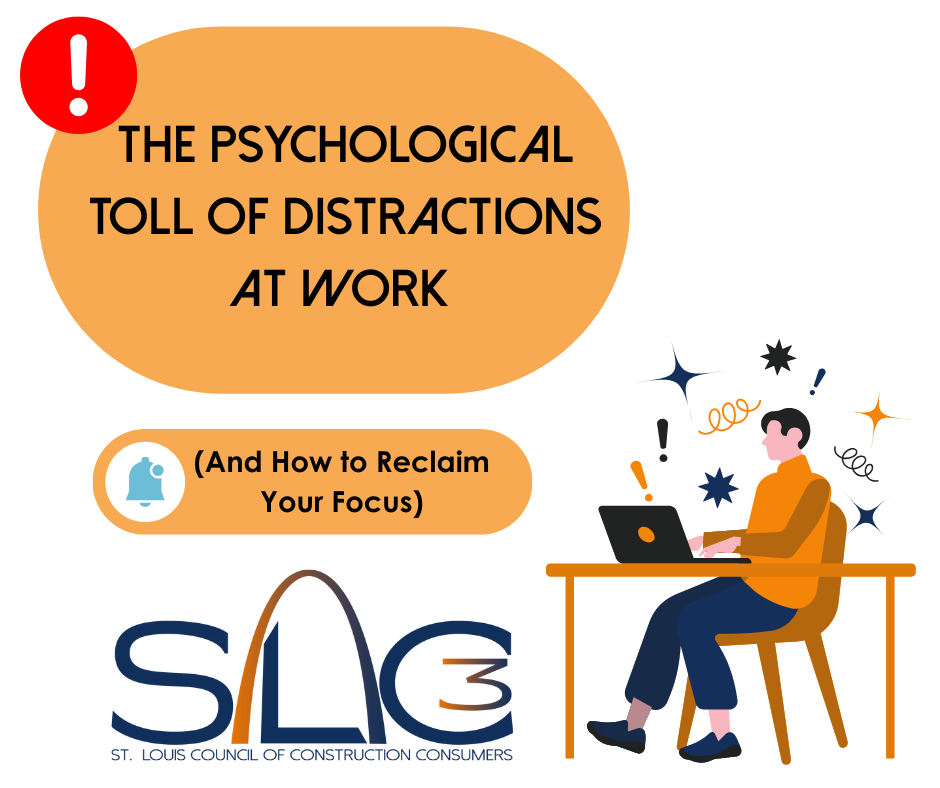You’re deep into a project, fully in the zone, when—ding!—an email notification lights up your phone. Without thinking, you check it. By the time you return to your task, your train of thought has derailed. Sound familiar?
In today’s workplace, distractions are everywhere. While a single interruption may not seem like much, research shows they carry significant psychological costs. Over time, they can erode productivity, heighten stress, and even contribute to burnout.
The Science of Distraction
Every time we’re interrupted, our brains need time to “context switch” back to the task at hand. Studies show it takes an average of 23 minutes and 15 seconds to fully regain focus after an interruption. Multiply that by dozens of notifications, messages, or check-ins per day, and the hours lost quickly add up.
The toll of constant distractions is more than lost time. It’s also:
- Increase stress, as unfinished work piles up.
- Reduce creativity, since our best ideas require deep, uninterrupted thinking.
- Heighten anxiety by keeping us in a reactive, “always on” mode.
- Contribute to fatigue and eventual burnout when the cycle repeats daily.
The Link to Burnout
Contrary to the myth of multitasking, our brains are not wired to do multiple things at once. Instead, we’re rapidly shifting between tasks, draining mental energy and leaving ourselves more exhausted than if we had focused on one thing at a time.
Burnout often stems from these fragmented workdays that make it impossible to find momentum or a sense of accomplishment. When our attention feels pulled in a thousand directions, frustration builds. Add the pressure of constant availability, and it’s easy to see why so many professionals feel overwhelmed.
Strategies to Minimize Disruptions & Protect Focus
The good news: you can take steps to reclaim your time and protect your energy. Try incorporating these strategies into your workflow:
- Batch communication: set specific times to check email or team chats instead of responding instantly.
- Use notification management: silence or mute non-urgent alerts during deep work.
- Time-blocking: dedicate chunks of your day to uninterrupted focus.
- Physical environment control: use noise-canceling headphones or a “do not disturb” signal at your desk.
- Prioritization frameworks: identifying and writing down your “top 3 tasks” can sharpen focus.
- Recovery practices: build in short breaks to reset your brain instead of letting distractions do it for you.
Distractions aren’t just minor inconveniences—they’re obstacles that chip away at productivity, mental health, and job satisfaction. By designing a workflow that limits interruptions, you can reclaim focus, reduce stress, and work in a way that feels more sustainable and rewarding.






